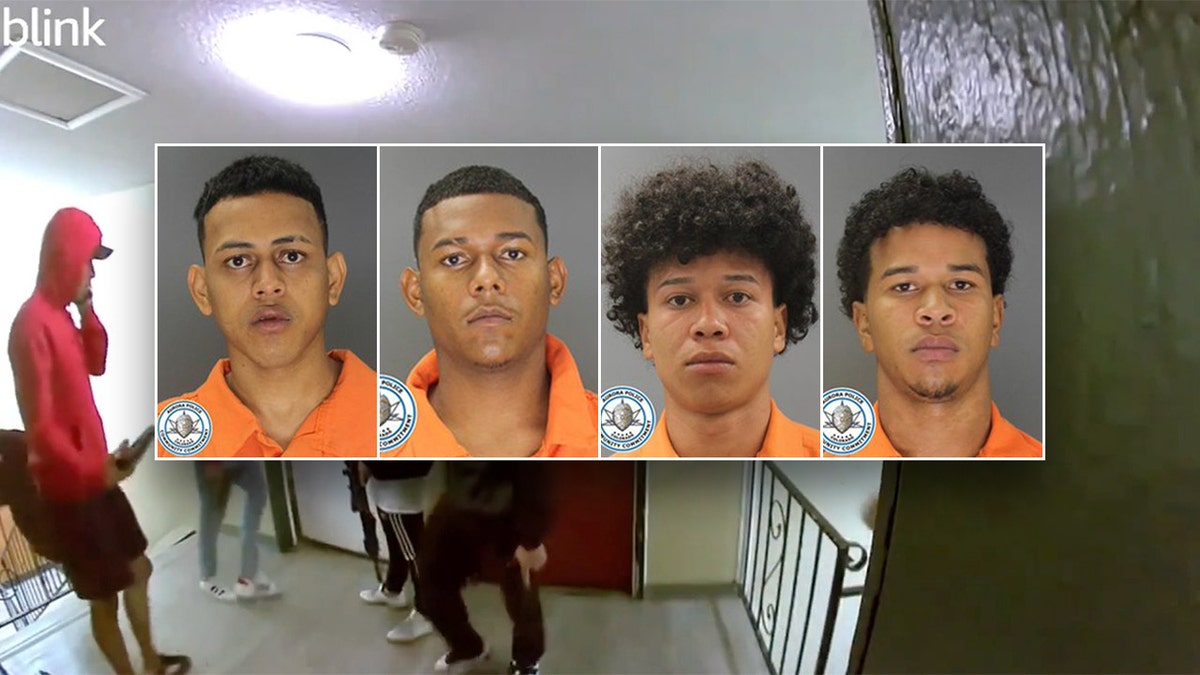Landlord agrees to sell Colorado apartment complex at center of Venezuelan gang problem: report

Officials in Colorado have agreed to drop all charges against the landlord of the Aurora apartment complex that has been at the center of the violent Venezuelan gang takeover controversy, according to a report.
In records obtained by the Denver Gazette, an agreement between the city and Nome Partners details that city officials agreed to drop dozens of charges against the Aspen Grove apartment complex landlord for failing to maintain the property.
The charges against the landlord also stem from his other property, which was shown in a viral video where members of Tren de Aragua (TdA), the violent Venezuelan migrant gang, took over an apartment by busting down the door with heavy artillery.
The agreement states that in exchange for dropping charges, Baumgarten agreed to waive his right to a speedy trial and Nome Partners LLC agreed to sell or lease the property, and, among other things, pay up to $60,000 of the costs to clean up and secure the complex, 9News reported.
Alleged members of the Tren de Aragua gang have overtaken an apartment building in Aurora, Colorado, charging rent in exchange for ‘protection.’ (Edward Romero)
Baumgarten’s company also blamed the TdA gang takeover for causing the Aspen Grove apartments to deteriorate into unlivable conditions.
One investor told The Denver Post that police knew about the gang problem for nearly a year.
In letters obtained by the Denver Gazette, the investor said the situation had gotten so out of control that they reached out to local officials seeking help to remove the TdA members, which the lawyer claimed had “forcibly taken control” of the property.
The property’s landlord also inquired about hiring off-duty police officers to provide security for the property, a request that the Aurora Police Department reportedly declined.
VENEZUELAN GANG’S ALLEGED TAKEOVER OF AURORA, COLORADO APARTMENTS BEGAN IN 2023: REPORT

Four Venezuelan nationals were confirmed to be in the United States illegally in a statement provided to Fox News by ICE. (Aurora Police Department, Eduard Romero)
“He was told we didn’t have the staffing to provide adequate security at all his properties,” Joe Moylan, an Aurora police spokesperson told the Gazette in a statement.
Rep. Greg Lopez, R-Colo., is pushing the Biden administration to crack down on the presence of illegal immigrants involved with gangs inside the U.S and introduced a new bill last week to combat migrant gangs.
If passed, the bill would compel the Department of Homeland Security (DHS) secretary to issue detainers for migrants who are known by law enforcement to be affiliated with a gang.
It is one of several bills House Republicans have introduced since reports of crime by illegal immigrants have piled up in cities and towns across the U.S.
“Under your leadership, the United States has lost control of our southern border,” Lopez wrote in a letter to DHS Secretary Alejandro Mayorkas on Wednesday urging him to “immediately issue a directive” to the local Immigration and Customs Enforcement (ICE) office “to aggressively apprehend, detain and deport any members of TdA or other known foreign criminal gangs, located in the state of Colorado” with a specific focus on Denver suburbs like Aurora.

Former Congressman and current Mayor of Aurora, Colorado Mike Coffman joined America Reports on Thursday to update the nation on Venezuelan gangs in his city. (Edward Romero, Getty Images, Danielle Jurinsky)
“With millions of encounters every year, criminal networks including Tren de Aragua have taken advantage of the situation and are wreaking havoc on our communities.”
Illegal immigrants have been accused in multiple high-profile killings in the U.S. this year, including Laken Riley and Jocelyn Nungaray.
Federal officials believe TdA is operating in the metro Denver area and terrorizing several apartment complexes around the city and neighboring suburbs. However, local politicians continue to insist that the “hysteria” surrounding concerns about Venezuelan gang members taking over apartment buildings was “overblown” by the media.
CLICK HERE TO GET THE FOX NEWS APP
Aurora law enforcement officials are also denying that there has been a gang takeover.
“We’ve been talking to the residents here and learning from them to find out what exactly is going on, and there’s definitely a different picture,” Interim Aurora Police Chief Heather Morris said in a Facebook video, according to USA Today. “I’m not saying that there’s not gang members that don’t live in this community.”
Fox News Digital’s Elizabeth Elkind contributed to this report.









